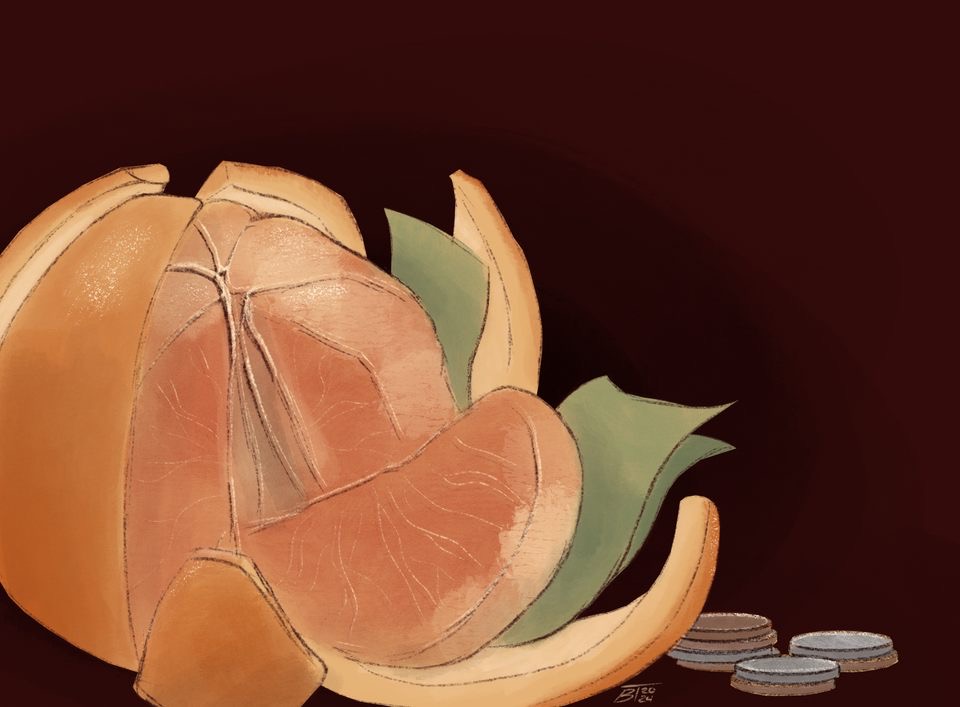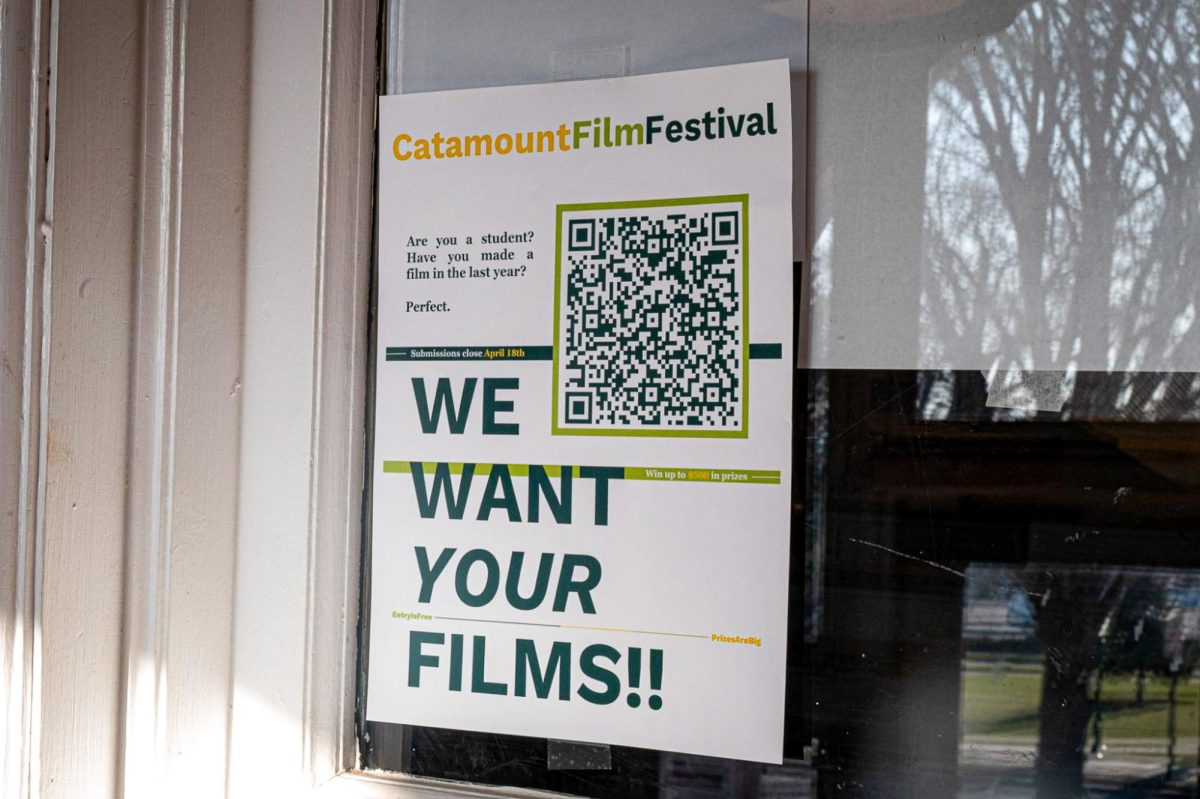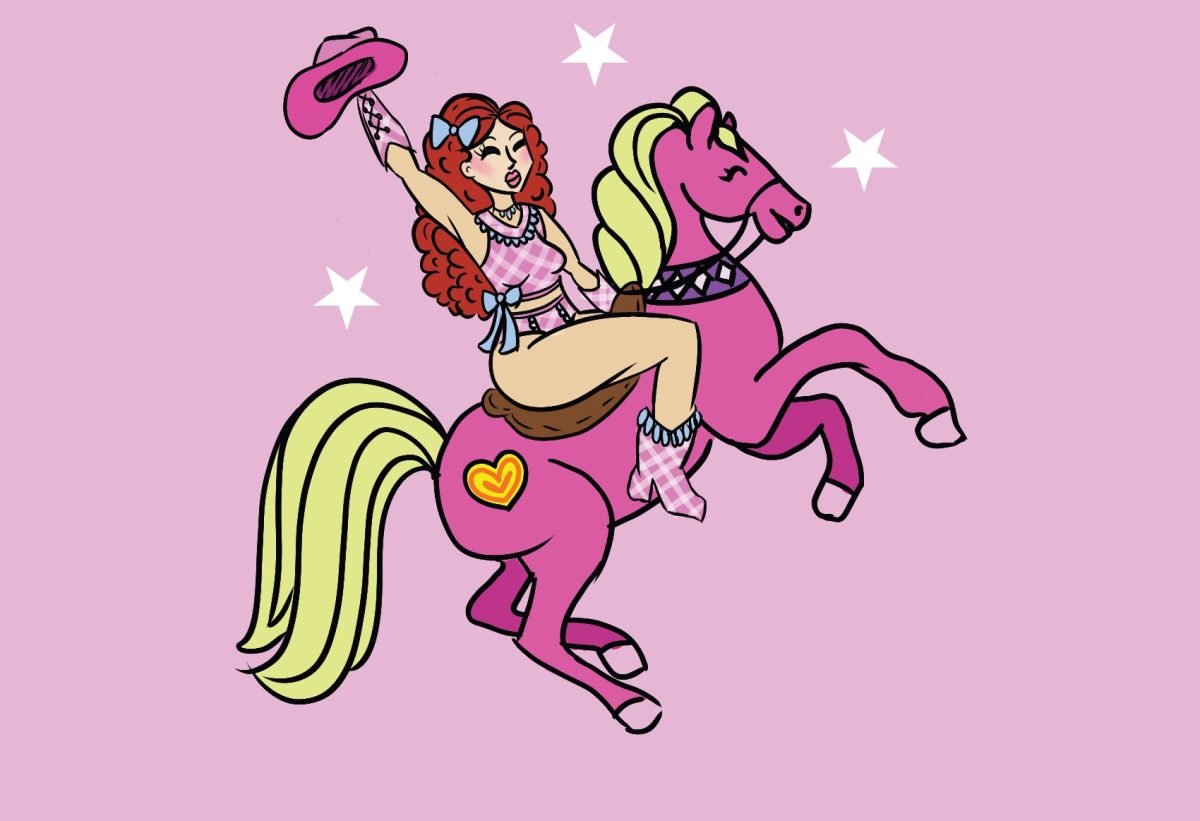The point of a dating app, from the perspective of a dating app, is to find love.
But to access this love, one must construct themselves in a way that demonstrates their adequacy and worth. This is seen clearly in both dating apps and in other spheres around intimacy and romance, like self-produced pornographic content.
“Anyone looking for love should be able to find it” according to Hinge, a popular dating app. They assure that with their Nobel-Prize-winning algorithm, they can get people on dates with optimistic outcomes. They insist, as part of their branding, that the purpose of getting Hinge is to delete it.
The dating app stretches out its invisible hand to offer you this perfect compatible match: one person who shares your hopes, dreams, desires, interests and hobbies.
It’s as if the app wants you to find a version of yourself you haven’t met yet, a sort of self-indulgent love—a fantasy.
“Psychoanalysis teaches us that basically, desire can be disastrous when it’s realized, so we think that we want this, but then when we get it, we actually realize we don’t want it, and then we are looking for something else. Fantasy is what is not supposed to be realized,” said Daae Jung, film lecturer at UVM in the department of English.
Slovenian philosopher Slavoj Žižek is a cultural theorist. Influenced by psychoanalysts and philosophers like Jaques Lacan, Karl Marx and Georg Hegel, he has received worldwide acclaim for his unique humor and controversial opinions.
“You cannot ever fall in love with the perfect person. There must be some tiny small disturbing element and it is only through noticing this element that you say but in spite of that imperfection I love him or her,” said Žižek in a video with Big Think titled “Slavoj Žižek on Synthetic Sex and “Being Yourself.”
So, this pressure to be perfect is all an illusion. But still, the pressure to perform for the dating app—hand over your heart and trust the algorithm—is not relieved through this revelation.
The functions of dating apps vary vastly. Apps like Hinge cater to users who aim to find love, while apps like Tinder are marketed toward shorter-term relationships or one-night stands. Bumble highlights the women’s choice, and you don’t have to be lonely with Farmers Only.
Raya is meant to make those not on the app feel bad about themselves. The selective nature of the app capitalizes on users’ insecurities asserting that only the “best” people are on this app. This assertion deceives potential users into thinking if they were only more attractive or had more followers, they could find love.
What all these apps have in common is the profile creation stage. This is the user’s time to shine. Create your list of qualities and hope someone somewhere will be your target audience and save you from searching.
“I must transform myself into a series of qualities and preferences that function as an advertisement for myself,” stated Todd McGowan in his book “Capitalism and Desire,” where he discusses the constant state of desire that capitalism forces people into.
“The features that render me more appealing as a commodity are necessarily the ones that I emphasize, and I pass over in silence the features that would lessen my exchange value,” he stated.
The constant self-identification and storytelling of profile creation force the user to perform for an audience and hope someone picks you.
One must self-commodify to access the mass pool of options in the app. The commodification of the self is naturally egotistic and self-infatuating—there’s simply no way around it.
“When you date online, you have to present yourself there in a certain way, putting forward certain qualities,” said Žižek. “You present an image of yourself, you focus on your idea of how other people should perceive you. But, I think that’s not how love functions. Even at the very simple level.”
So given all this pressure, introspection and self-insecurity, dating apps provide solace from the fear of losing control. The apps allow us to pull in the reins and take control of our image—at least in one aspect.
The commodification of the self can lead people to believe even their love has exchangeable value. The one thing in life that is unmeasurable and inexhaustible has been perverted into being viewed as capital.
The commodification of the self isn’t limited to dating apps where the currency is sex, love or romance—people will pay real money for those things.
OnlyFans is an internet content subscription service founded by Tom Stokely in 2016. With this service, content creation is up to creators and they in turn are responsible for marketing themselves, which allows them to reap most of the rewards of their labor.
Sex sells, and under capitalism, sales are the most important objective. The liberation of sex is not due to some progressive ideal, but due to the fact that it brings in the big bucks. OnlyFans creators can make hundreds of dollars a month, with some celebrity creators making a hundred times that, according to a blog post from Social Rise.
“I think fundamentally, it’s the non-sex parts of online sex work that make someone succeed or fail, which is counterintuitive for a lot of people,” stated by OnlyFans content creator Aella. “Good content without good marketing won’t get you anywhere, just like with all other online stuff.”
Pornography historically has been about looks, performance and entertainment. But OnlyFans introduces a new aspect that puts the responsibility to sell on the creator, furthering the commodification of the self.
“OnlyFans represents the creator economy at its most blatantly transactional,” author Drew Harwell stated in a Nov. 9, 2023 Washington Post article. “A place where viewers pay upfront for creators’ labor, and intimacy is just another unit of content to monetize.”
McGowan argues that capitalistic society seeks to replace love with romance, removing the traumatic nature of love and replacing it with something predictable and something that can be sold.
“When one falls in love, one loses all sense of oneself and one’s symbolic coordinates. Love is never a good investment for the subject, and this separates it definitely from romance,” McGowan stated. “The transformation of love into romance […] allows us to love on the cheap.”
Commodification of the self, and essentially the commodification of love, leads everyone to view themselves more as a product for someone else to enjoy, rather than a participant in the revolutionary creation of a relationship.
Our own pleasure is taken out of the equation, and we become another marketed item in capitalist society.













